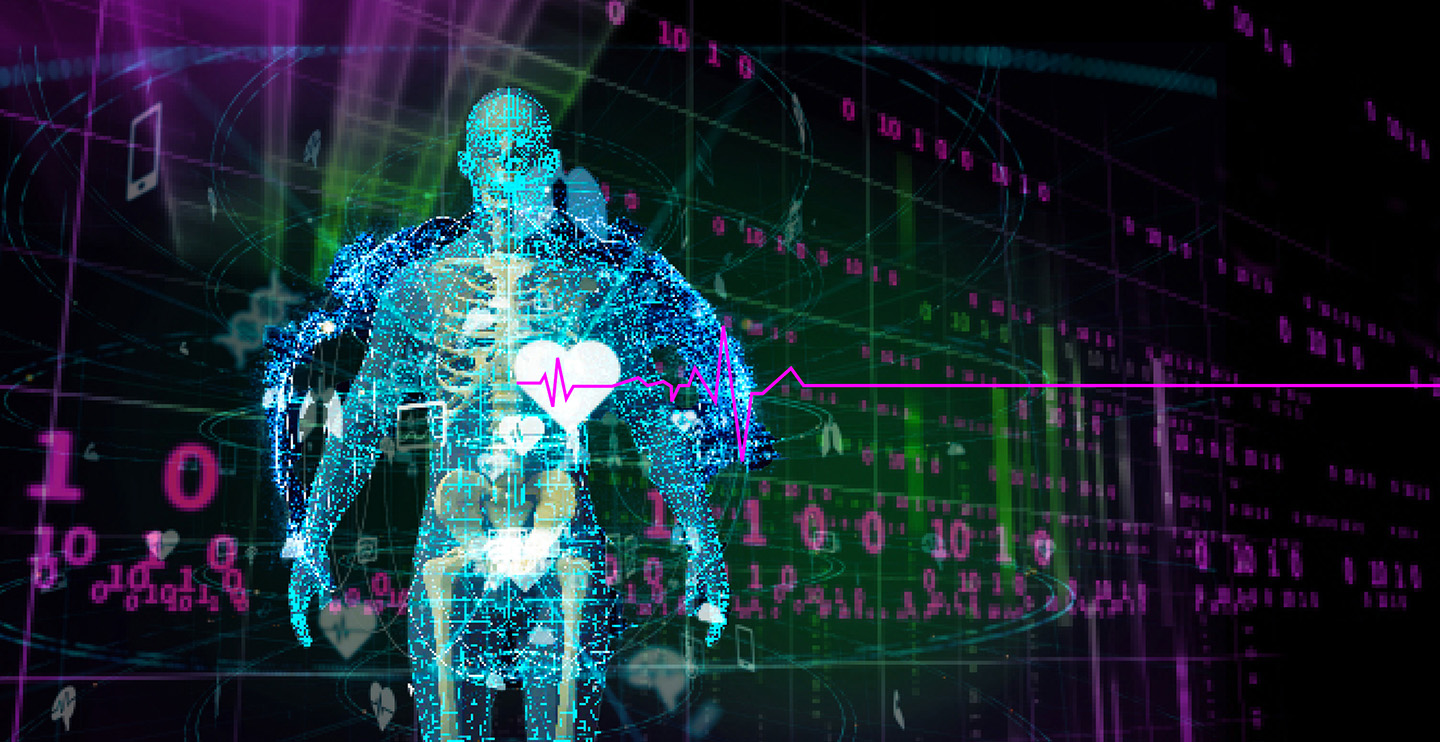This fall 2022 semester we are proud to welcome four new Visiting Fellows: Rafael Alonso, A. J. Alvero, Hillary Leone, and Smriti Prathapan. The IDSC Visiting Fellows Program is designed for academic and industry professionals outside the University of Miami who want to contribute to their fields through collaborations with our data scientists. The program is also for those who have an interest in research and/or education involving data science and computing and want to gain practical research experience in data science in a variety of disciplines, like earth systems, biomedical and healthcare, and urban labs and smart cities, to name a few. The Visiting Fellows appointment is for one year and is renewable. IDSC provides the Visiting Fellows access to the University’s immense advanced computing infrastructure and the opportunity to explore collaborations with colleagues with a variety of expertise.
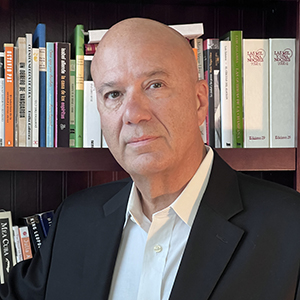
Rafael Alonso Dr. Rafael Alonso is Technology Consultant and Investor. He’s a former Vice President at Systems and Technology Research (STR), responsible for business growth in several technical areas. Before joining STR, he was the Director of the Autonomy and Analytics Division at Leidos (formerly part of SAIC). He managed more than 130 professionals, spanning both research and operational programs in the areas of text, sensor, and applied analytics, as well as robotics. He held the Vice President rank, and was a Leidos Technical Fellow. Previously, Dr. Alonso was the Senior Vice President and Director of SET’s Information Systems and Security Division, from 2006 until its acquisition by SAIC in 2010. Prior to joining SET, he was the Technical Director of Sarnoff’s Convergence Laboratory, where he was responsible for overseeing a staff of 40 employees and several externally funded research projects in a number of areas including Databases Systems, Web Information Systems, Machine Learning and User Modeling, Video Quality, Video Compression, Digital Cinema, and Targeted Advertising. Prior to joining Sarnoff, he co-founded the Matsushita Information Technology Laboratory in Princeton, N.J., where he served in various roles including Associate Director and Senior Scientist. At MITL, Rafael developed leading edge Information and Video Systems for Panasonic. Dr. Alonso started his career as an Assistant Professor in the Computer Science Department of Princeton University, where he graduated several students, and co-developed new courses in database technology and distributed systems. He has published over 60 scientific papers in information and knowledge management topics. Dr. Alonso obtained his B.S. in Mathematics and Computer Science from New York University, an M.S. in Electrical Engineering from Columbia University, and a Ph.D. in Computer Science from U.C. Berkeley.
|
|
Robert Atlas Dr. Robert “Bob” M. Atlas is the former Chief Meteorologist at NASA’s Goddard Laboratory for Atmospheres, and Director Emeritus of the National Oceanic and Atmospheric Administration’s (NOAA) Atlantic Oceanographic and Meteorological Laboratory (AOML) on Virgina Key in Miami, Florida. Some of the areas he focused his research on included the prediction, movement, and strengthening of hurricanes. He has worked with both satellite data and computer models as a means to study these hurricane behaviors. Dr. Atlas received his PhD in Meteorology and Oceanography in 1976 from New York University (NYU). Prior to receiving the doctorate, he was a weather forecaster in the U.S. Air Force where he maintained greater than 95% forecast accuracy. From 1976 to 1978, Dr. Atlas was a National Research Council Research Associate at NASA’s Goddard Institute for Space Studies (GISS), New York, an Assistant Professor of Atmospheric and Oceanic Science for SUNY The State University of New York, and, Chief Consulting Meteorologist for the ABC Television Network. In 1978, Dr. Atlas joined NASA as a research scientist. He served as head of the NASA Data Assimilation Office from 1998-2003, and as Chief Meteorologist at NASA Goddard Space Flight Center (GSFC) from 2003-2005. Dr. Atlas has performed research to assess and improve the impact of satellite data on numerical weather prediction since 1973. He was a key member of the team that first demonstrated the significant impact of quantitative satellite data on numerical weather prediction, and he is the world’s leading expert on Observing System Simulation Experiments, a technology that enables scientists to determine the quantitative value of new observing systems before funds are allocated for their development. He served as a member of the Satellite Surface Stress Working Group, the NASA Scatterometer (NSCAT) Science Team, the ERS Science Team, the SeaWinds Satellite Team, the Working Group for Space-based Laser Winds, the Scientific Steering Group for GEWEX Global Energy and Water Exchanges, the Council of the American Meteorological Society, and, served as Chairman of the U.S. World Ocean Circulation Experiment (WOCE) Advisory Group for model-based air-sea fluxes. He is currently a member of the Science Teams for two NASA space missions. From 1974-1976, he developed a global upper-ocean model and studied oceanic response to atmospheric wind forcing, as well as large-scale atmospheric response to sea surface temperature (SST) anomalies (unusual events). In more recent years, his research concentrated on the role of how the air and sea interacts in the development of cyclones, the role of soil moisture and unusual SST events in the initiation, maintenance, and decay of prolonged heat waves and drought, and, most recently, on the modeling and prediction of hurricane formation, movement, and intensification. He is a recipient of the NASA Medal for Exceptional Scientific Achievement, and the American Meteorological Society’s Banner I. Miller Award. In 2019, just prior to his retirement from NOAA, he was honored by the National Hurricane Center for Enduring Contributions to the nation’s hurricane forecast and warning program, and by the U.S. House of Representatives for his service to the nation. |
|
Ljubisa Daba Dabic, AAIA, an innovative architect with experience in healthcare and smart city programs is a partner in AMB Architectural Design Studio LLC in Rockville, Maryland, Dabic is a LEED accredited professional (AP) who has designed a chain of healthcare facilities across the United States, Canada, the United Kingdom, and Germany. He has also led the design and renovation projects of the Embassy of Macedonia, and the Embassy of Bosnia and Herzegovina in United States. Dabic’s research at IDSC will focus on combining architectural innovation with digital health solutions in the context of smart cities. In collaboration with other IDSC colleagues, Dabic will contribute his architectural engineering expertise toward achieving the vision of University of Miami’s leadership in the smart city program, Yesha added. He will also build IDSC’s international collaborators through partnerships with international academic institutions and private industry.
|
|
Stephen Dennis conducts research and participates in the development of next-generation analytic and computing technologies and applications as a senior researcher at the University of Maryland at College Park. He leads and serves as a team member contributing to the vision, strategy, research activities, and partnerships that contribute to institutional growth. In this role, he coalesces and leverages extensive innovation experiences and networks, technical skills, and collaborations that add value to the research ecosystem and yield scalable results for the emerging technology marketplace. In addition, he formulates and maintains highly effective partnerships with internal/external organizations to develop effective and repeatable engagements that are scalable in practice, and represents the organization to nonprofit, industry, academia, government, and foreign government partners as required to create, mature, and leverage effective relationships that serve common goals and derive mutual benefit. Currently, Mr. Dennis teaches Advanced Topics in Policy: Homeland Security as a graduate student instructor and subject matter expert regarding the history and formulation, execution, and frameworks for homeland security policymaking. Beginning in Fall 2021, he also began serving as a Senior Consultant for the Center for Innovative Technology supporting the Chief Technology office in the development of capabilities that support State of Virginia decision-making, including the Governor and Legislature, regarding a spectrum of emerging technology innovations and related economic development activities. He also serves as a subject-matter expert advising the development of information-sharing capabilities and internet of things architectures related to a wide variety of state, regional, and local smart city applications. From January 2020 to January 2021, Mr. Dennis served as the Director, Department of Homeland Security (DHS), Science and Technology Directorate, Advanced Computing Technology Centers, and as the DHS Science and Technology Representative to the White House Office of Science and Technology Policy and the National Security Council’s National Strategic Computing Initiative. He began at the DHS in 2007 as the Technical Director for the Advanced Research Projects Agency, advancing to Advanced Research Projects Agency Innovation Director in 2012. In 2016, he became the Director for the DHS Science and Technology Directorate, Data Analytics Technology Center. Mr. Dennis has a BS in Computer Engineering from Clemson University, an MS in Electrical Engineering and MBA from the University of Maryland, College Park. He received the Presidential Rank Award for Meritorious Service—Career Service (2017), the DHS Secretary Unity of Effort Award—Cross-cuting Analytics (2016), the DHS Secretary Meritorious Service Medal—Delivering Mission Capability (2015), the DHS S&T Undersecretary Award for Building Partnerships (2014), and the DHS S&T Undersecretary Award for Innovation (2012).
|

Pierre-François d’Haese For the last decade, Pierre has devoted his professional career to developing advanced technologies for computer-assisted solutions for the medical industry. He conceived the CranialVault system as part of his PhD work and became the key architect of a unified DBS assistance solution. As a research assistant professor, he took a leading role in the Vanderbilt DBS project (PI: Dr Dawant), creating the CranialVault Consortium, deploying the system at several leading institutions, and managing a team of several researchers and clinicians. He has spent the last 18 years working in the areas of atlas creation, automatic segmentation, and non-rigid registration, including 16 years focusing on deep brain stimulation. Supported by a five-year Phase I then Phase II STTR grant, Pierre evolved the CranialVault system into what is now the CranialCloud. This progression makes the system broadly accessible to research teams, as well as to corporations in need of a HIPAA-compliant repository capable of storing image and non-image information, and offers the possibility of applying processing algorithms to the data stored in the repository. Pierre currently holds a part-time faculty position in Electrical Engineering and Computer Science at Vanderbilt, and serves as CEO/CTO of Neurotargeting, LLC. This dual role has allowed him to stay abreast of research issues, which has helped in designing the CranialCloud, and in developing strong ties with other academic institutions that are now using the system. Pierre has also been the key architect for the CranialCloud network, composed of key academic institutions in the areas of deep brain stimulation, epilepsy, and pain management (the CranialCloud system is currently used to manage data for over 10,000 patients). |
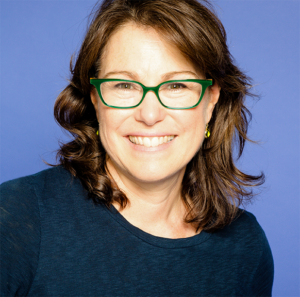
Hillary Leone Hillary Leone is an internationally recognized artist and award-winning digital creative who works at the intersection of art, science, technology, and social impact. Leone’s artwork, known for interrogating language and systems of meaning, has been exhibited in North America, South America, Europe, Asia, and Australia, featured in the Whitney Biennial, and is in the Whitney’s permanent collection. Her current projects include Synch.Live, a new work on emergence that blends cutting-edge research in information theory with experiential art, in collaboration with a team of UK-based scientists (University of Cambridge, Imperial College London). She is also working on a project that intersects art, linguistics, digital humanities and public health, with a team of cognitive linguists (University of Birmingham UK). Leone is an affiliate member of Out of Minds, a research lab at the University of Birmingham. As a creative founder, Leone has directed more than hundred projects across digital, video, animation, and experiential, under the aegis of her creative studio, Cabengo. Hillary has received numerous grants and awards and has taught and lectured widely. She has a degree in Semiotics and English and American Literature from Brown University; in Art from California Institute of the Arts; and is a graduate of the Whitney Museum Independent Study Program in Studio Art. |
|
Dr. Michael Morris is a Maryland clinician-scientist whose work focuses on advanced diagnostic imaging. Dr. Morris’s clinical practice includes diagnostic radiology and nuclear medicine, oncoradiology, theranostics, and cancer imaging Informatics. He serves on the medical staff at Mercy Medical Center, a private academic-affiliated hospital and cancer referral center for the State of Maryland and surrounding regions.
In his research work, Dr. Morris has conducted numerous studies and co-authored multiple publications, including “New Technology and Clinical Applications of Nanomedicine,” and “Nanomedicine and Drug Delivery.” His academic interests include oncoradiology, molecular and hybrid imaging, and imaging informatics with various projects at his host institution, and in collaboration with the National Institutes of Health (NIH), Baltimore VA Medical Center, University of Maryland Baltimore County (UMBC), Johns Hopkins University, and other organizations.
Dr. Morris graduated from Johns Hopkins University with bachelor’s and master’s degrees in molecular and cellular biology, as well as exposure to “multi-omics” in biological systems. He then served as a team member on the initial U.S. Food and Drug Administration (US FDA) clinical trial for an intraoperative diagnostic tool, which helped spark his interest in quantitative approaches to medical diagnostics. After earning his medical degree at the University of Maryland, he completed an internship in the joint Mercy Medical Center/University of Maryland Medical Center program in internal medicine, and his residency in diagnostic radiology at the University of Maryland Medical Center in the department of diagnostic radiology and nuclear medicine, where he also completed his nuclear medicine training.
|
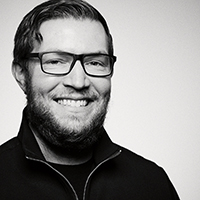
Michael Mylrea Dr. Michael Mylrea is a Distinguished Fellow for Industrial Cybersecurity at the University of Miami IDSC, and a Senior Distinguished Engineer at Resilience, one of the fast-growing technology companies in the US focused on disrupting medicine with innovation. At Resilience, Michael is leading security architecture and design efforts with various disruptive solutions, from Digital Twin to Privacy Preserving Zero Trust platforms. Dr. Mylrea has +18 years of cybersecurity experience developing innovative solutions and holds +14 cyber and blockchain patents. He led one of the first and largest federally funded blockchain projects that help introduce blockchain tech to the national lab system. He launched and led a successful ethical hacking cybersecurity company and has held CISO, CTO and senior technical positions in industry, government, including, but not limited to: GE, Pacific Northwest National Lab, the U.S. Departments of Energy and Defense, US Cyber Consequences Unit, Harvard Berkman Klein Center, and Cyber Team 7. Michael has helped influence various standards, regulations, and technology developments through participation in Group of 7, National Security Council, National Science Foundation, National Academy of Science, IEEE, NDIA, AAAI, and NIST panels, consortium, advisor boards (Tenable, CyManII, CARTA, Rocky Mountain Institute, EC Council and World Business Angels Investment Forum). He frequently keynotes large conferences and workshops such as RSA and IoT World. His work has appeared in news, journal articles, television, and congressional testimony and is frequently cited in technical, industry, and government publications. Dr. Mylrea is a National Science Foundation CyberCorps Scholar alum, completing his Doctorate at George Washington University (GWU) on Cybersecurity. Michael is a recipient of a number of distinguished awards (Fulbright Scholarship, NSF CyberCorps, Rosenthal Fellowship, FDD National Security Fellowship, Top 99 Future Leaders Award). Michael speaks Hebrew, Arabic, Spanish, and Portuguese and is proficient in auditing various computer languages.
|
|
Smriti Prathapan received her B.Tech. degree in electronics and communication engineering from Mahatma Gandhi University, India, her M.S. degree in microelectronics systems from University of Liverpool, UK, and her Ph.D. in computer science from University of Maryland Baltimore County (UMBC) in 2020. She was a research assistant with the Energy Efficient High Performance Computing (EEHPC) Laboratory and NSF Center for Accelerated Real Time Analytics (CARTA) and a postdoctoral associate at University of Miami’s Institute for Data Science and Computing (IDSC). Dr. Prathapan is an ORISE Fellow at FDA’s Division of Imaging, Diagnostics, and Software Reliability (DIDSR) within Center for Devices and Radiological Health (CDRH)’s Office of Science and Engineering Laboratories (OSEL) where she is involved in creating novel methods to characterize and evaluate AI devices to assess the performance of AI/ML algorithms in medical imaging to enable efficient utilization of imaging data and efficient clinical studies. She is also a visiting fellow at IDSC, University of Miami. Her research interests include AI for medical imaging applications, novel deep learning algorithms for medical image analysis using semi-supervised and unsupervised methods and explore the relationship between machine learning and dynamical systems, with applications to computational neuroscience and biology. She is also interested in the computational modeling of large-scale neuronal networks to explore the role of neural dynamics in higher cognition in both machines and brains. |
|
Dr. Babak Saboury is a radiologist and nuclear medicine physician, dual-board certified by ABR and ABNM, and board eligible in clinical informatics by ABPM with extensive clinical expertise in oncoradiology, particularly MRI and PET (Magnetic Resonance Imaging and Positron Emission Tomography) image interpretation, as well as targeted radionuclide therapy. Dr. Saboury is a physician-scientist in the Department of Radiology and Imaging Sciences at the NIH Clinical Center. He joined the University of Pennsylvania (UPenn) in 2009 and during his four-year tenure there, he gained advanced expertise in modern molecular imaging with a focus on Positron Emission Tomography (PET) and novel quantitative techniques for the development of translational imaging biomarkers as the Director of the Quantitative Imaging Biomarker Laboratory of Abass Alavi. In 2014, he joined The University of Maryland as a combined radiology and nuclear medicine track resident physician training with visionaries in both fields, Eliot Siegel and Vaskin Dilsizian, and stayed there as an attending radiologist and nuclear medicine physician until 2019 when he accepted his clinical appointment at the NIH. His clinical residency at the University of Maryland exposed him to the full breadth and depth of clinical radiology and nuclear medicine sharpening his expertise and skills as a physician. This rigorous training prepared him to address the most complicated aspects of clinical radiology and nuclear medicine. On the other hand, working at UPenn with the world-renowned pioneers of molecular imaging and PET carefully attuned his scientific mind. He is the author of more than 60 peer-reviewed papers, with more than 100 presentations at national and international meetings. Dr. Saboury is a Professor of Computer Science and Electrical Engineering (adjunct) at the University of Maryland Baltimore County (UMBC). As an oncoradiologist, nuclear medicine, and clinical informatics physician, he is the lead radiologist for PET/MRI and the Chief Clinical Data Science Officer for RADIS. |
|
Dr. Eliot Siegel is Professor and Vice-Chair at the University of Maryland School of Medicine, Department of Diagnostic Radiology, as well as Chief of Radiology and Nuclear Medicine for the Veterans Affairs Maryland Healthcare System. He is the Director of the Maryland Imaging Research Technologies Laboratory and has adjunct appointments as Professor of Bioengineering at the University of Maryland College Park, and, as Professor of Computer Science at the University of Maryland Baltimore County (UMBC). Dr. Siegel was responsible for the NCI’s National Cancer Image Archive and served as Workspace Lead of the National Cancer Institute’s caBIG In Vivo Imaging Workspace. He has been named as Radiology Researcher and Radiology Educator of the year by his peers as well as one of the Top Ten radiologists. Under his leadership, the VA Maryland Healthcare System became the first filmless healthcare enterprise in the world. He has written over 200 articles and book chapters about PACS (Picture Archiving and Communication Systems) and digital imaging, and has edited six books on the topic, including Filmless Radiology and Security Issues in the Digital Medical Enterprise. He has made more than 1,000 presentations throughout the world on a broad range of topics involving computer applications in imaging and medicine. Dr. Siegel served as symposium chairman for the Society of Photo-optical and Industrial Engineers (SPIE) Medical Imaging Meeting for three years, and is currently serving on the board of directors of the Society of Computer Applications in Radiology (now Society for Imaging Informatics in Medicine). He is a fellow of the American College of Radiology and of the Society of Imaging Informatics in Medicine. |
|
Dr. Mark Wolff has over 25 years of experience in the healthcare, life science, and software industries as a scientist and analyst working in the U.S., Europe and Asia, having held a variety of research and leadership positions in academia, government, and industry. Recognized as an accomplished practitioner and thought leader in the development and application of advanced/predictive analytics, machine learning, artificial intelligence, and data visualization to solve complex problems in research, development, and commercialization in the pharmaceutical, medical device, and healthcare industries. his current work focuses on the development and application of machine learning approaches to streaming sensor/IoT data in support of improving health outcomes and safety and the design of intelligent decision support systems for clinical development, care delivery, and digital health initiatives. Dr. Wolff is a sought-after speaker, writer, and consultant by industry, academia, and government, with
|
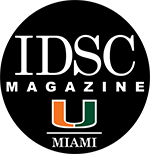
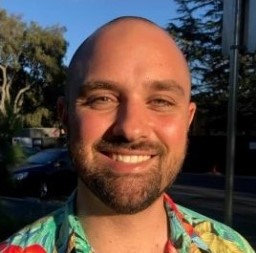
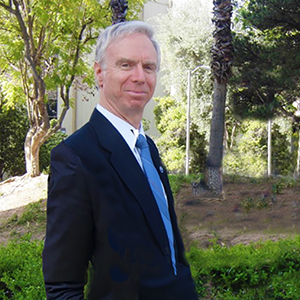
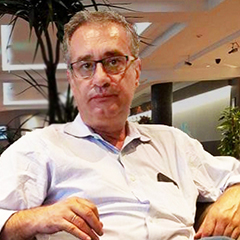 Ljubisa Daba Dabic
Ljubisa Daba Dabic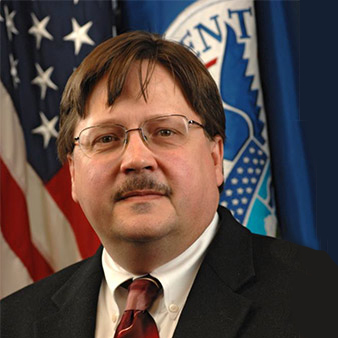 Stephen J.Dennis
Stephen J.Dennis Michael Anthony Morris, MD MS
Michael Anthony Morris, MD MS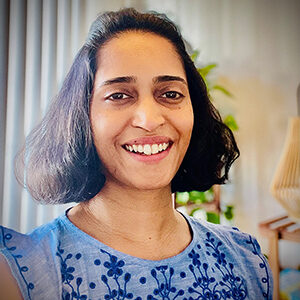 Smriti Prathapan, PhD
Smriti Prathapan, PhD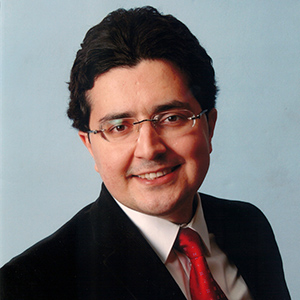 Babak Saboury, MD, MPH, DABR, DABNM
Babak Saboury, MD, MPH, DABR, DABNM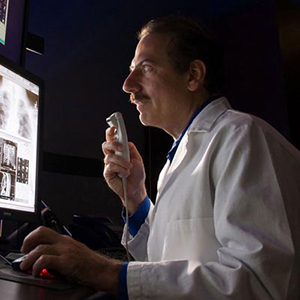 Eliot L. Siegel, MD
Eliot L. Siegel, MD Mark Wolff
Mark Wolff